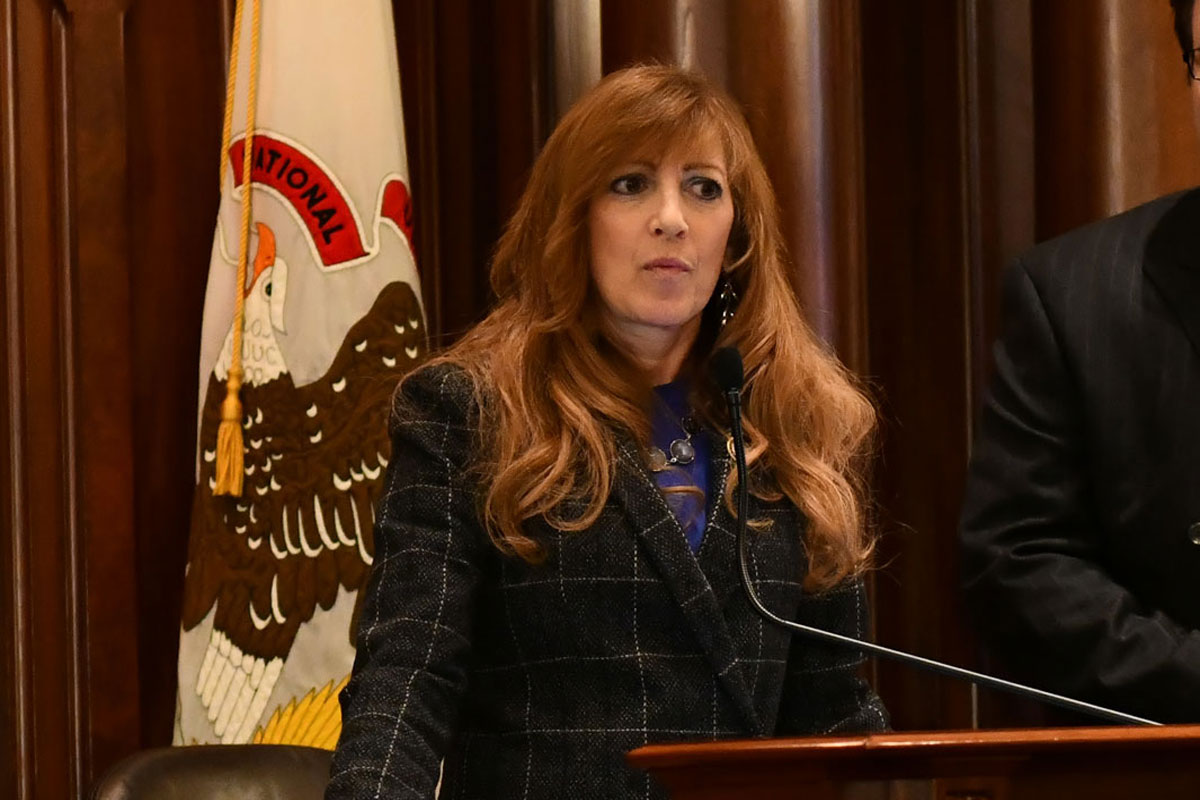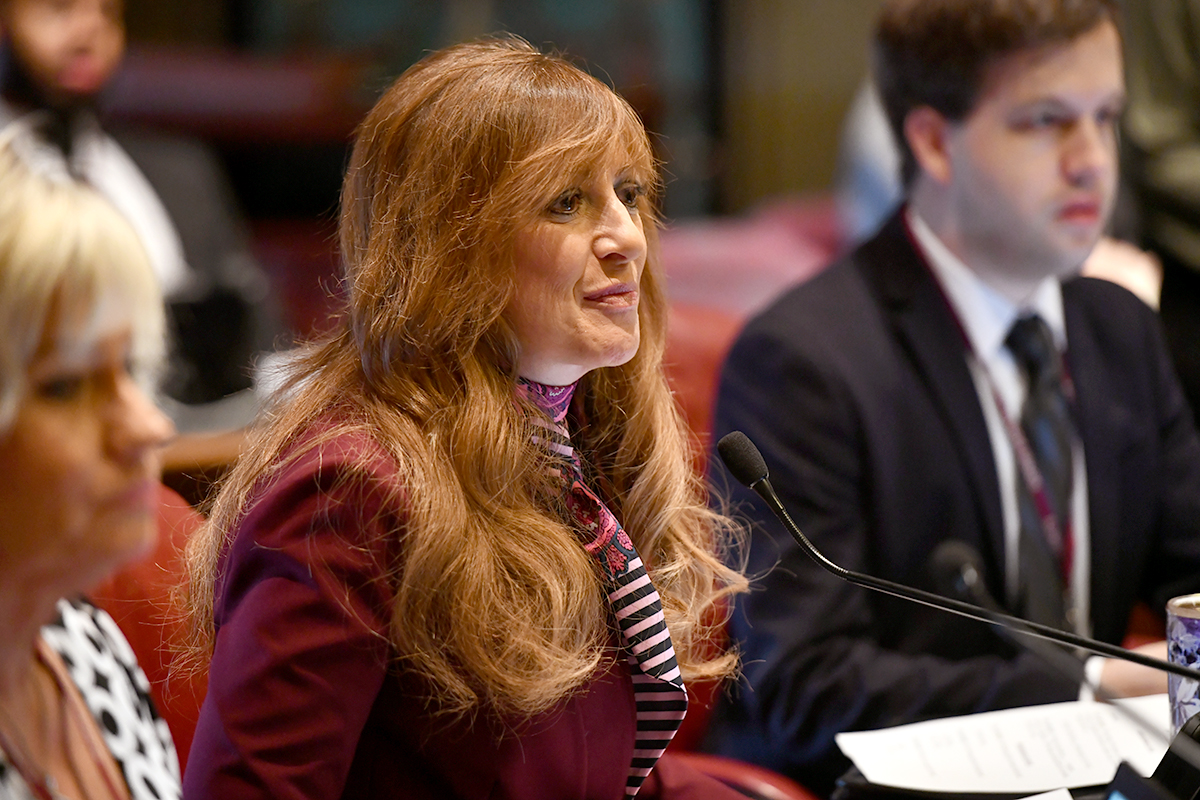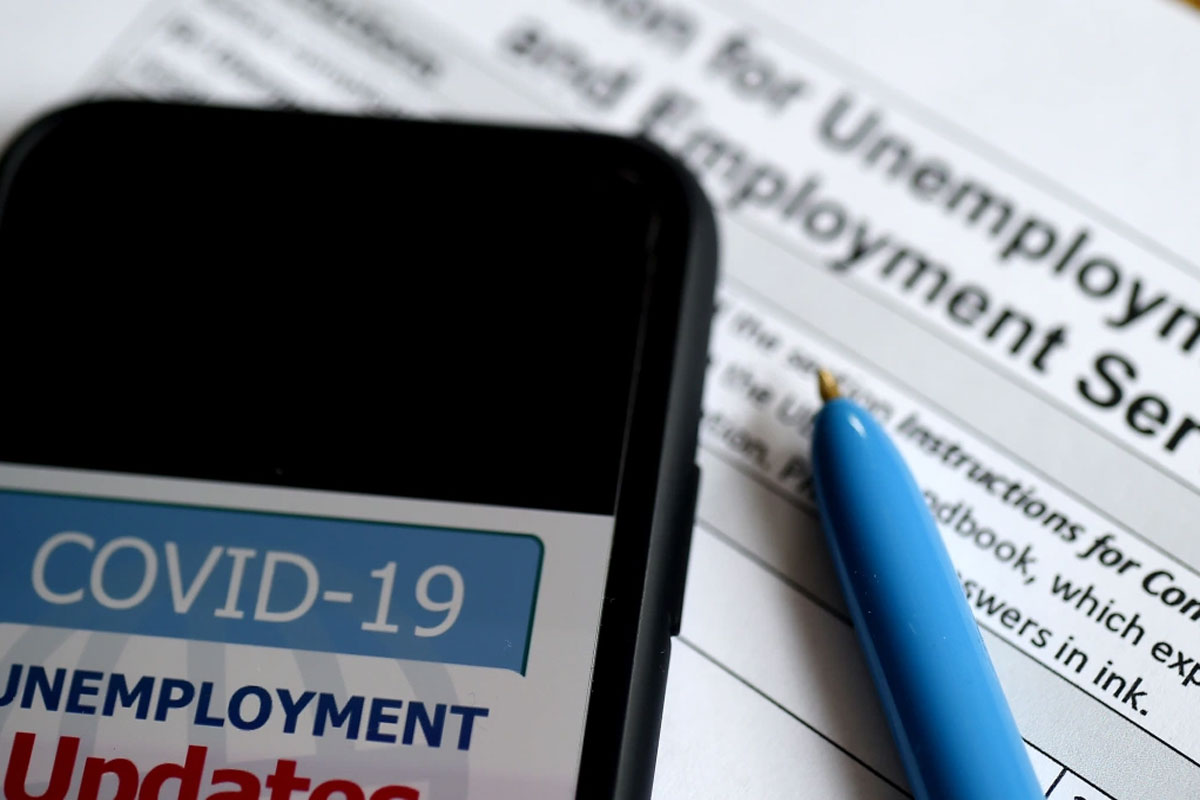- Details
- Category: Senator Linda Holmes News
 On Friday, September 18, the United States lost its petite powerhouse in the Supreme Court, Justice Ruth Bader Ginsburg.
On Friday, September 18, the United States lost its petite powerhouse in the Supreme Court, Justice Ruth Bader Ginsburg.
Ginsburg died at her home in Washington, D.C., surrounded by family. She was 87 and succumbed to complications of metastatic pancreatic cancer after multiple rounds with the disease.
In reaction to news of her loss September 18, members of the Senate Women’s Caucus responded with sorrow and resolve, and released the following statement:
Read more: Justice Ginsburg passes after long struggle with pancreatic cancer
- Details
- Category: Senator Linda Holmes News
 AURORA – Small businesses continue to confront financial hardships as the COVID-19 pandemic continues, and Assistant Senate Majority Leader Linda Holmes (D-Aurora) is encouraging business owners to apply for assistance through the second round of Business Interruption Grants.
AURORA – Small businesses continue to confront financial hardships as the COVID-19 pandemic continues, and Assistant Senate Majority Leader Linda Holmes (D-Aurora) is encouraging business owners to apply for assistance through the second round of Business Interruption Grants.
“So many local businesses have faced unprecedented challenges during the COVID-19 pandemic, and I’m pleased we have another round of grants available to help them get back on their feet,” said Holmes. “Our small businesses have been resourceful and flexible in adapting to new safety guidelines, and I hope this will give them the assistance they need to bounce back.”
The BIG Program has allocated $220 million in the second round for movie theatres, performing arts venues, concert venues and more to help them stay afloat through this time of crisis and ensure they have the resources to open safely in the coming months.
BIG funds may be used to help businesses cover the costs of payroll, rent, utilities and other working capital during the time they have experienced interruptions due to the pandemic.
To ensure funds are distributed across the state and across business type, $60 million has been specifically allocated for heavily distressed industries, including indoor recreation facilities and amusement parks, and another $70 million has been set aside for businesses located in disproportionately impacted areas, or low-income areas that have experienced high rates of COVID-19. For a full list of eligible zip codes, click here.
The Illinois Department of Commerce and Economic Opportunity awarded a total of $46 million to 2,655 small businesses in the first round of BIG funding earlier this year. Those grants went to Illinois restaurants and bars, barbershops and salons, and fitness centers. In the Aurora area, 33 local businesses received a combined $540,000.
“It was gratifying to see our local businesses get this boost in the first round of the BIG Program,” Holmes said. “I encourage affected businesses in this round’s categories to apply for funding as soon as they can.”
Applications open Thursday, Sept. 17 and can be found on the Illinois Department of Commerce and Economic Opportunity’s website alongside a full list of criteria.
- Details
- Category: Senator Linda Holmes News
 Aurora, Ill. - If you may have been exposed to someone with COVID-19, getting tested is critical, says Senate Assistant Majority Leader Linda Holmes (D-Aurora).
Aurora, Ill. - If you may have been exposed to someone with COVID-19, getting tested is critical, says Senate Assistant Majority Leader Linda Holmes (D-Aurora).
“Scientific studies show even those without symptoms have been linked to virus spread, so testing is vital, particularly for those who believe they may have been exposed,” Holmes said. “To get this pandemic under control, we need as much information as possible on who is transmitting the virus.”
Widespread testing is a key component of the Illinois Department of Public Health’s strategy to combat COVID-19. Since March, Illinois has tested more than 3.8 million COVID-19 specimens and expanded testing to all parts of the state.
“In the face of increasing infections, we need to promote more testing, not less, to identify new cases and interrupt further transmission,” said IDPH Director Dr. Ngozi Ezike last week.
Dr. Ezike encourages testing for any resident who thinks they may have been exposed, whether or not they are experiencing symptoms. She recommends waiting 5-7 days from exposure to get tested.
Despite a recent change in federal guidelines, IDPH continues to advise testing for anyone who comes into close contact with a confirmed case to ensure people are not spreading the virus unknowingly to others, especially to those with underlying medical conditions that put them at greater risk of complications from COVID-19.
According to IDPH, there are nearly 300 testing sites in Illinois, including 11 state-operated sites and 12 mobile testing teams. Testing is free at state-operated sites and several other
locations. More information about locations, hours and requirements can be found at http://www.dph.illinois.gov/testing.
- Details
- Category: Senator Linda Holmes News
 AURORA – In an effort to provide support to small business owners facing economic hardship as a result of the COVID-19 crisis, State Senator Linda Holmes (D-Aurora) announced 33 local businesses will receive a combined $540,000 through the Business Interruption Grant (BIG) program.
AURORA – In an effort to provide support to small business owners facing economic hardship as a result of the COVID-19 crisis, State Senator Linda Holmes (D-Aurora) announced 33 local businesses will receive a combined $540,000 through the Business Interruption Grant (BIG) program.
“So many local businesses have faced unprecedented challenges during the COVID-19 pandemic, and I’m proud to see them receive these grants to help them get back on their feet,” said Holmes. “Our small businesses were resourceful and flexible in adapting to new safety guidelines, and I hope this will give them the assistance they need to bounce back.”
The Illinois Department of Commerce and Economic Opportunity awarded a total of $46 million to 2,655 small businesses in the first round of BIG funding. The BIG program offers grants to Illinois restaurants and bars, barbershops and salons, and fitness centers that have suffered pandemic-related losses, with a focus on businesses in the hardest-hit areas of the state.
First round grants range from $10,000 to $20,000 and may be used to help businesses with working capital expenses, including payroll costs, rent and utilities. The funds may also be used to cover pandemic-related expenses, such as personal protective equipment, training and new technology.
To ensure ongoing support for Illinois small businesses, the State of Illinois has planned future rounds of funding.
“There is so much more to do to help our business community recover from this crisis,” said Holmes. “These funds will let them focus their efforts on reopening in a way that keeps staff and customers safe.”
The BIG program is the largest state-run economic support program formed in response to the COVID-19 economic downturn. The full list of grant recipients is available here.
- Details
- Category: Senator Linda Holmes News
 AURORA – Nationwide, scammers are targeting those receiving unemployment benefits at this difficult economic time exacerbated by to the coronavirus pandemic. Senate Assistant Majority Leader Linda Holmes (D-Aurora) warns area residents who haven't applied for unemployment benefits but receive a debit card claiming to provide benefits that they could be the target of a scam.
AURORA – Nationwide, scammers are targeting those receiving unemployment benefits at this difficult economic time exacerbated by to the coronavirus pandemic. Senate Assistant Majority Leader Linda Holmes (D-Aurora) warns area residents who haven't applied for unemployment benefits but receive a debit card claiming to provide benefits that they could be the target of a scam.
“It’s shocking in the midst of these crises to learn scammers are targeting vulnerable residents and their unemployment benefits,” Holmes said. “To bring scammers to justice, IDES is aggressively pursuing fraudsters filing false claims.”
Recently, individuals began receiving KeyBank debit cards and unemployment letters in the mail, without having applied for benefits. IDES warns that people who received these erroneous mailings may be targets of fraud.
IDES launched an investigation into what appears to be a nationwide fraud scheme targeting applicants to the federal Pandemic Unemployment Assistance (PUA) program. IDES said ambiguous federal guidelines—developed hastily to respond to the COVID-19 pandemic—leave PUA claimants open to attack. IDES maintains this scheme is not connected to the PUA program access issue experienced in May.
An IDES team is working directly with individuals whose identities are being used or have possibly been stolen. The department is also working with local and federal law enforcement authorities to pursue and prosecute those committing fraud.
“If you have received a debit card in the mail without applying for benefits, you should not activate them,” Holmes said. “IDES urges you to call them immediately at 1-800-814-0513 to report identity theft.
Online, you can use the IDES Contact Form. On the drop down, select the option, “UI Fraud/Identity Theft". Complete the required fields and DO NOT include social security numbers or other personal identifiable information in the comment section. Be sure to include an email address so that you will receive an autoreply providing important information and steps you can take while you wait to hear back from them.
Victims of fraud should also check their credit reports for possible suspicious activity, post a fraud alert and visit the Federal Trade Commission’s website for helpful tips on recognizing and reporting identity theft.
- Details
- Category: Senator Linda Holmes News
 AURORA – Assistant Senate Majority Leader Linda Holmes (D-Aurora) is pleased to see nearly $1.6 million in Aurora-area road construction projects slated for this year as part of the state’s ongoing multi-year construction plan.
AURORA – Assistant Senate Majority Leader Linda Holmes (D-Aurora) is pleased to see nearly $1.6 million in Aurora-area road construction projects slated for this year as part of the state’s ongoing multi-year construction plan.
“This is the right time to see improvements to area infrastructure,” Holmes said. “These Rebuild Illinois projects will create new, well-paying jobs when we need them most; they will also facilitate commerce and transportation, while making needed updates to roads that will improve public safety.”
The Illinois Department of Transportation’s multi-year plan includes projects to improve the state’s infrastructure over the next six years. These projects were selected based on such criteria as pavement and bridge conditions, traffic volumes and history of accidents. They will create thousands of jobs statewide at a time when many Illinoisans are still struggling with unemployment due to the COVID-19 pandemic.
Projects slated for Holmes’ district include:
Description Year/Investment
|
Montgomery Road at Waubonsee Creek: This multi-phase project begins with construction engineering to then replace the bridge; it includes replacing superstructure, widening and resurfacing the road, sidewalks and railings. |
2021: engineering and construction $1,125,000 |
|
Farnsworth Ave at Indian Creek: This year’s phase is preliminary engineering for major bridge repair to begin next year, which will open up the waterway. |
2021: engineering $160,000 2022-26: construction $1,820,000 |
|
US 34 (Ogden Ave. from Rickert to Feldott, Naperville: This year’s phase is land acquisition for another phase beginning next year to relieve a bottleneck and accident-prone area, with added and extended left turn lanes, resurfacing and bicycle and pedestrian traffic accommodation. |
2021: land acquisition $300,000 2022 – 2026: construction $1,500,000 |
When construction is underway, motorists should anticipate delays and may wish to seek alternate routes. Holmes encourages drivers to obey posted construction zone speed limits and watch out for workers on construction projects.
IDOT’s complete Multi-Year Plan can be found on its website.
More Articles …
Page 17 of 20















 © 2026 Illinois Senate Democratic Caucus
© 2026 Illinois Senate Democratic Caucus